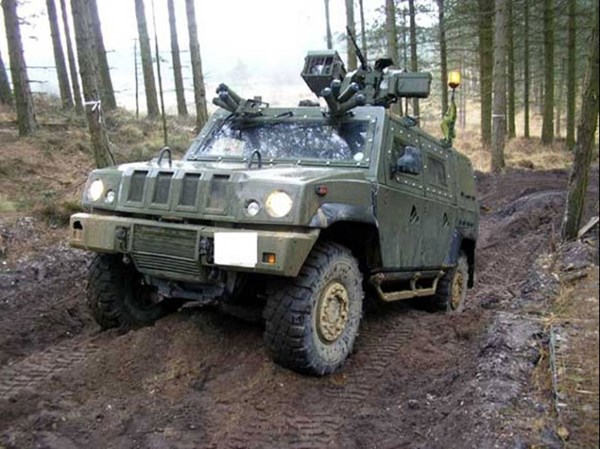Several EU countries accused of continuing arms deals with Russia despite sanctions
According to Mikhail Samus, an expert at the Ukrainian Center for Army, Conversion and Disarmament Studies (CACDS), several European countries continue to have active arms deals with Russia despite the EU’s sanctions banning such activities.
In an interview with Krym.Realii, Samus claimed that Italy, despite the direct prohibition of the supply of arms and military equipment to Russia, continues to supply Iveco LMV “Lynx” light armored vehicles to the Russian Ministry of Defense.
"The contract for the purchase of around 350 new Italian armored vehicles was signed by the Russian Federation and Italy all the way back in 2011. 10 vehicles were transported to Russia as a finished product, and others were assembled from Italian parts at the JSC ‘172nd Central Car Repair Factory’ in Voronezh and at LTD ‘Remdizel’ in Naberezhnye Chelny. Documentation that accompanies the implementation of the Russian-Italian contract for the supply of the Iveco LMV ‘Lynx’, indicates that the work still continues, and hasn't stopped during all this time even for one day. Perhaps this explains why constant Italian voices can be heard that talk about the need to lift the sanctions against Russia?" the expert suggested.
"In particular, during 2014 in Russia, 81 machine sets were imported from Italy, in 2015 - 93 sets. Production planning for 2015-2016 assumes the assembling in Russia of 356 Italian armored vehicles. Interestingly, the end recipient of all the machines, which are made in 2015-2016, is defined as military post number 48670, which is situated in the city of Kamensk-Shakhtinsky in the Rostov region (91th Central Base of the Reserve of Motor Vehicles). Apparently, to be immediately forwarded to the Russian troops that occupy the Donbas [sic]? By the way, Iveco LMV "Lynx" have been seen in Syria; as a part of the Russian groups, and as military equipment used by the governmental Syrian troops. So far the Italian government hasn't voiced protests against the resale of the Italian armored vehicles by Russia to the Assad regime," Samus said.
He noted that Italy is not the only country that violates the sanctions banning arms deals with Russia. Recently, Russian media reported on the intention of the Hungarian Ministry of Defense to purchase around 30 Mi-8/17 multipurpose helicopters from Russia. It was noted that this issue will be discussed between Russian President Vladimir Putin and Hungarian Prime Minister Viktor Orban during the latter’s visit to Moscow on February 17th. The contract would be worth an estimated 400 million dollars.
"What motivates Budapest to take risks and purchase military equipment from Russia in spite of the EU’s sanctions? There are both objective and subjective reasons. For example, no one doubts that the Hungarian army needs helicopters; because of their lack [of helicopters] Hungary doesn't fulfill its obligations to create a helicopter group in the interests of the NATO and is constantly criticized for this within the framework of the Alliance. Also, undoubtedly, the lack of multipurpose helicopters prevents the further development of the Special Operations Forces of Hungary," the analyst explained.
In mid-January, the Greek Parliament ratified an agreement with Russia on the supply of military products. The document is conceptual and determines all the necessary legal frameworks for the supply of Russian military products to Greece. It should be added that Greece already has armed itself with Russian ships and S-300 missile defense systems.
"It seems that the Greeks want to buy for themselves even more Russian weapons," Samus concluded.
As a result of the sanctions imposed by the US and the EU following Russia’s annexation of the Crimea in early 2014, many European countries ended their military contracts with Moscow. France, for example, stopped the sale of two Mistral ships to Russia, a deal that was worth nearly 1 billion dollars. Similarly, Germany halted the construction of military training centers on Russian territory worth approximately 350 million euros.
